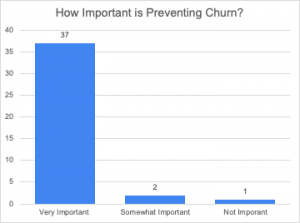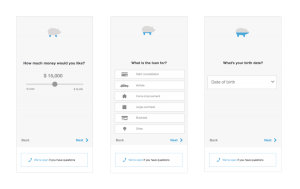
geralt / Pixabay
Naturally, every process is driven by another one. Modern technology is shaping our lives, the ways we do business and accordingly determines new marketing approaches targeted at boosting success. Hence, it is crucial to be in sync with the requirements of today and what’s more — of tomorrow.
For modern technology, eight years is forever and a day. People used to spend hours on what we can now do with just a few clicks. Back in 2011, Marc Andreessen claimed that software is eating the world, allowing us to establish an interwoven network of separate things and presenting substantial new opportunities for businesses.
Where Are We Now?
Here’s a new suggestion from Niko Köbler: APIs are eating the world! We no longer live in the times of isolated software environments. API (Application Programming Interface) is a significant step forward. One can hardly imagine today’s world without instant messaging, online banking, shopping, or booking. However, we owe all this to APIs as they interpret one software or application to another one.
If we think of a bar, a bartender is an API. When a visitor comes in, he is not allowed to fetch a drink behind the counter. For this, we need the bartender, who knows what beers are on tap and can serve people with a couple of pints.
APIs enable programmers to tap into a world of services with just a few lines of code. Similarly, for SEO-related metrics and reports, APIs simplified things big-time. This has been a real sea change. What’s in it for your business? Let’s dive into it, and, more importantly, figure out how not to drown.
First and Foremost: How to Navigate?
Search engine optimization has become considerably time-taking labor. Nonetheless, to attract more visitors and, as a result, more customers for a company, the website has to climb the search results stairs higher. An appropriate SEO approach is essential to meet this goal.
By all means, you would want to build up a leading SEO strategy and win your place under the sun. SEO software and tools come into play here to give you a hand with this task. They provide access to the necessary data for identifying weak spots that need to be covered, and thus for avoiding getting knocked down by search engines.
However, a comprehensive analysis of vast data volumes for several websites, as an example, requires an all-out effort and a great deal of time. Moreover, an SEO specialist would usually need specific features, and others might be useless for particular research. Therefore, purchasing a ready-made SEO tool proves ineffective. At this point, API solutions become the right direction to look in.
Why Are APIs Making Off-the-Shelf SEO Tools Drown?
Building a custom SEO software of the bright blue seems quite a hideous idea. Why would one want to take a journey through the hell of the backend development process? It means you would face an incredible amount of technical tasks and put yourself or your team through hoops of dealing with complicated methods of searching for and obtaining data. In such a case, spending money, time and resources means struggling to reinvent the wheel when with much less pain, it can be bought ready-made.
On the other hand, this would provide less flexibility for an SEO toolkit, hampering it to perfectly fit the specific needs of your or your client’s business. Very often it would eventually bring even more expenses on new additional features or upgrades. Furthermore, many SEO software providers use APIs for their tools to cut time and costs. Therefore, logically enough, SEO analysts would prefer setting their own rules rather than playing by someone else’s, and with APIs, this no longer just a saying.
After all, relying on APIs solutions appears to be a pretty much best plan to take evasive action from the backend development battlefield, and construct your SEO tool out of third-party APIs as out of LEGO bricks. Besides, most API providers share all-embracing documentation to assist their customers in benefiting from using their APIs most efficiently and without a hitch.
APIs: Cutting Corners Using a Star Chart
Having the right APIs for an SEO expert equals to the suitable keys that open the doors behind which the necessary data are stored. Likewise, API providers supply the required connections for data retrieval and take care of the data quality. Following this, customers may stay focused on their SEO software interface and functionality, as well as control their spendings. With APIs, you are free to navigate to the desired SEO analytics outcomes the way you choose to.
Reaping the benefits of reliable APIs combined in one toolkit will put an end to:
1. Jumping from one tool’s dashboard to another’s exporting your analytics
2. Finding your downloads folder packed with CSV files named in Gibberish
3· Wasting time on making many identical requests, since with API batch data analysis becomes possible.
Indeed, using an API makes SEO research tools way more customizable and flexible. It allows scraping data on the fly, pulling it into a database or Google spreadsheets and combining reports.
Pick a Ship and Set Sail!
Working with a combination of several APIs is the most personalized and flawless way to research numerous on-page and off-page SEO factors. The only thing left to figure out is what APIs your research scale would require and find a reliable API provider. Various vendors offer a range of APIs for different measurements of a website (keywords’ positions, PPC data, competitive analysis, etc.) that can be embedded in a custom tool. For instance, one can easily blend keyword rankings data with search volume, site crawls, and backlinks into one structured report. At once, in case only the raw data is required, and the reporting features are unnecessary, no money or efforts will be wasted on them. Remember that you will be at the helm and you will only need a map which APIs can serve you as.
Anyway, considering APIs, one should bear in mind three things:
1. Data accessibility (meaning the way you wish to pull the data).
2. Data freshness and integrity (it is always better setting up a trial account for the service you intend to buy and getting a personal experience with the data).
3. Costs (look for API solutions with flexible and scalable pricing plans).
In a nutshell, employing APIs for the SEO analytics custom tool is the winning pick to understand the best practices for presenting your product in the market. No doubt that getting together those SEO tools can be quite challenging; you never know, just like with LEGO sets. But if we end up with the magic bullet and the perfect weapon, isn’t it the risk worth taking?
Digital & Social Articles on Business 2 Community
(28)






